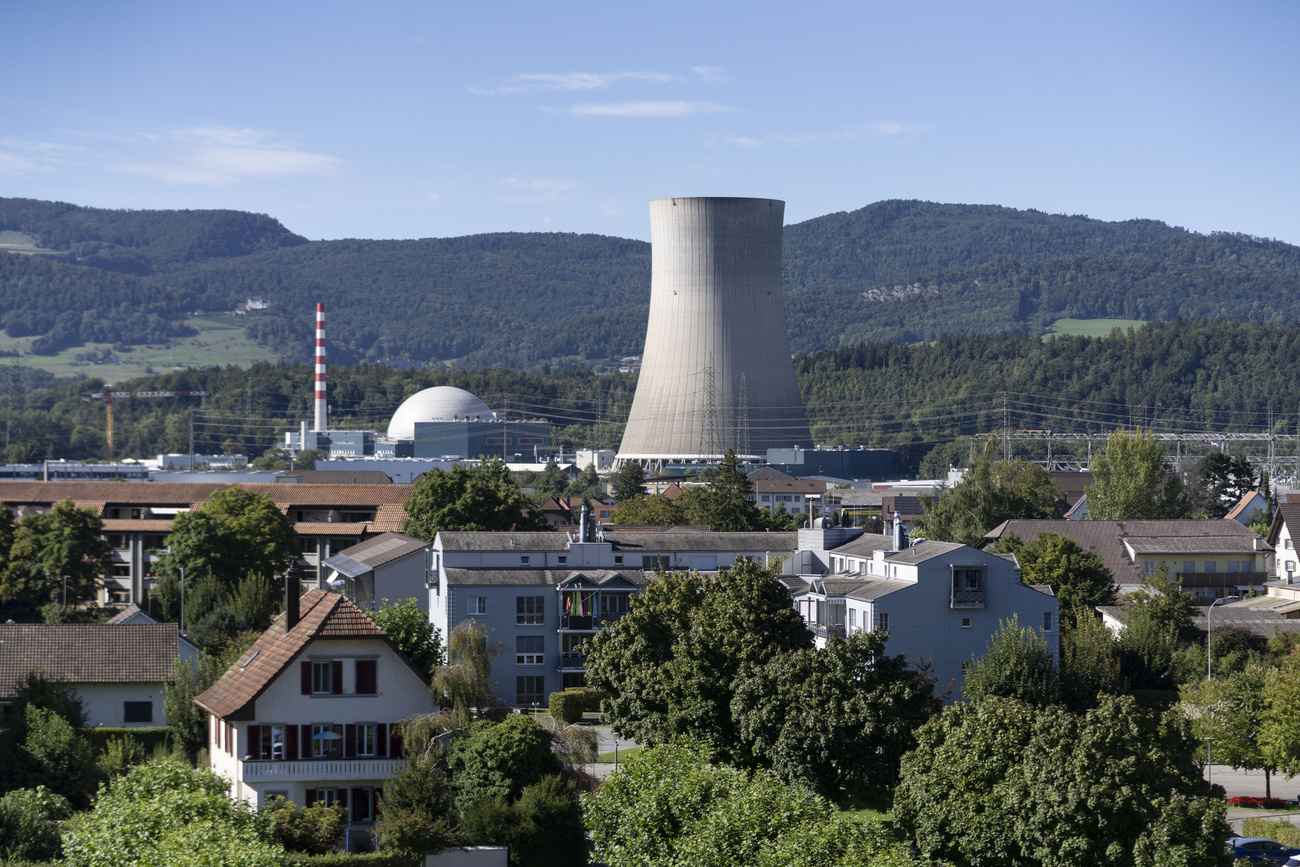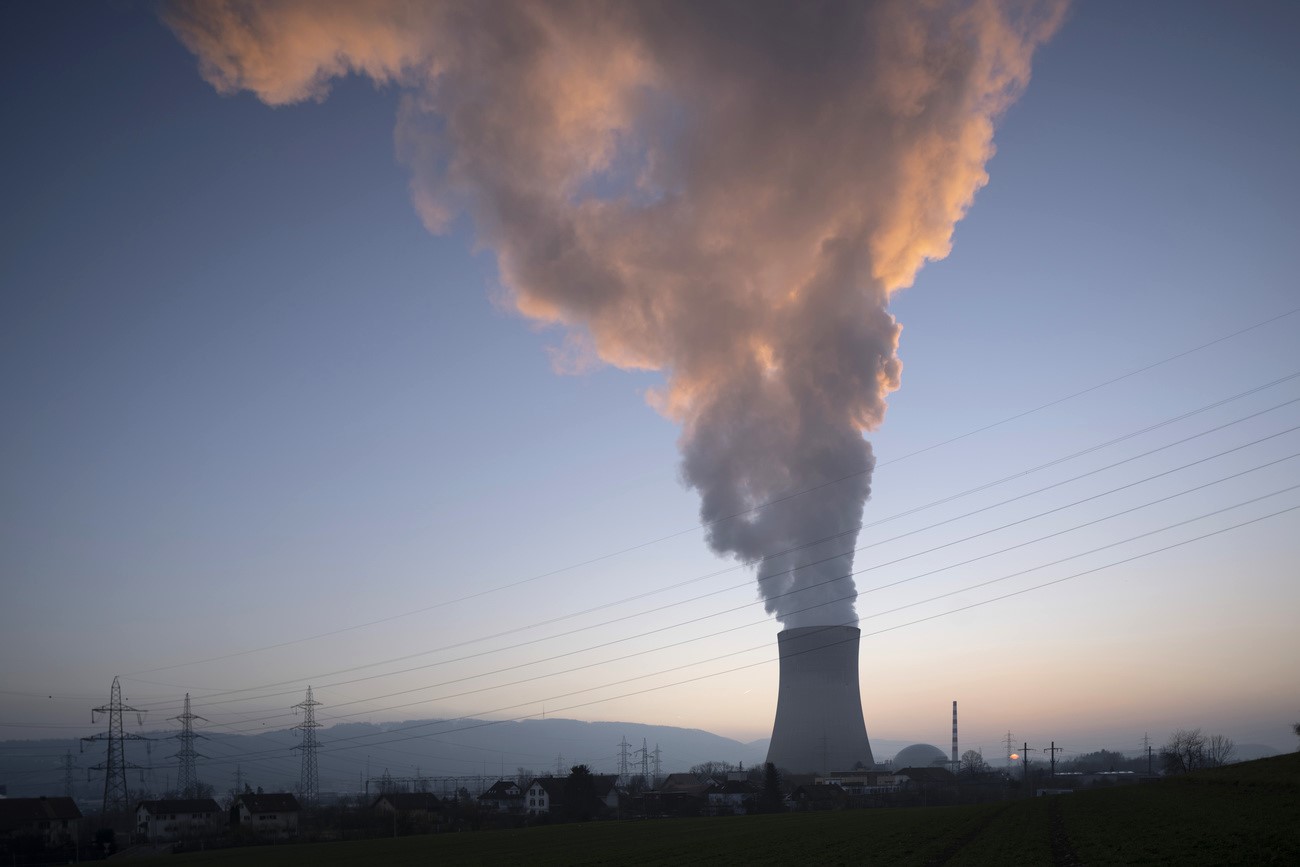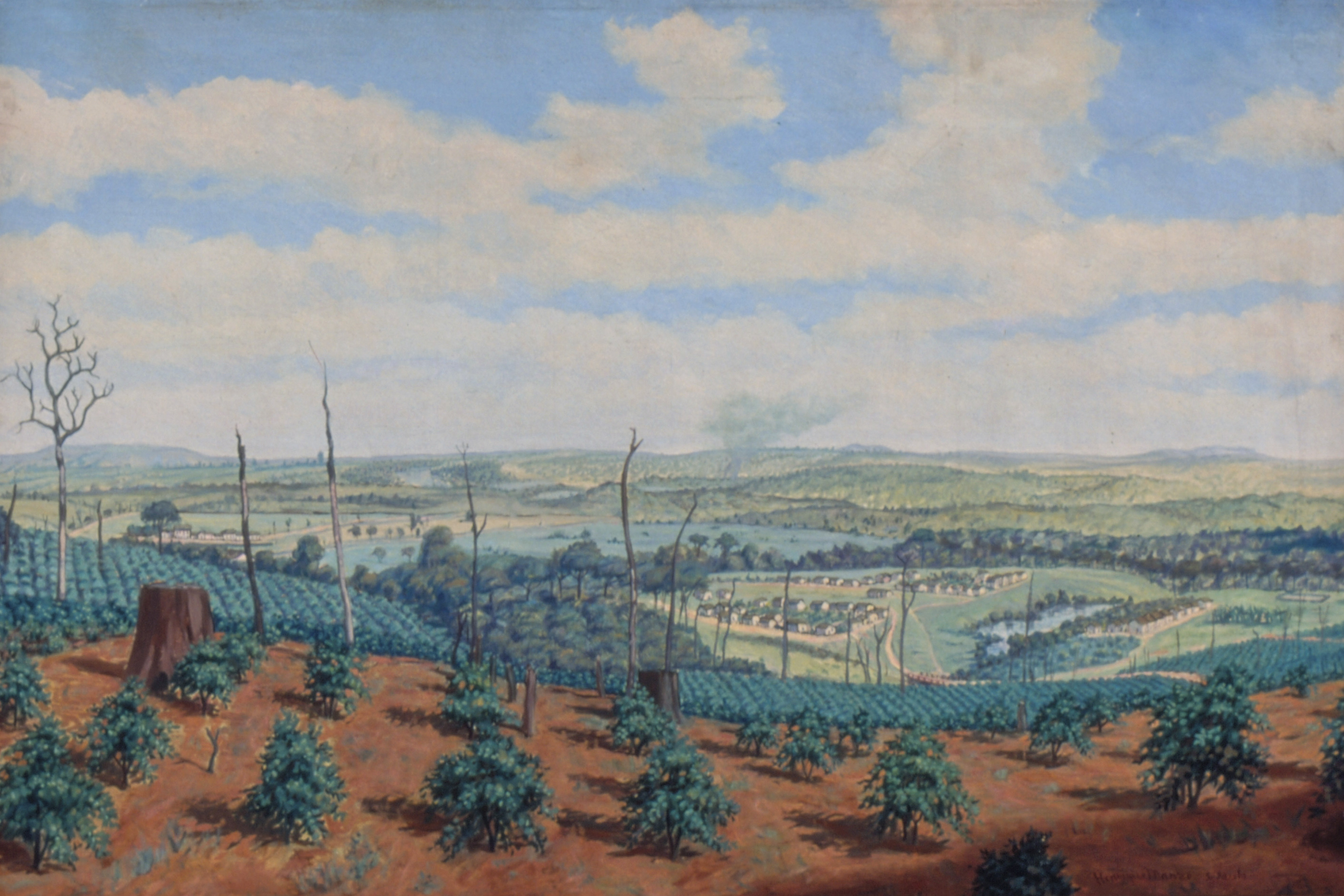
Survey reignites debate on nuclear power in Switzerland

According to a recent survey, a majority of Swiss voters would like to allow the construction of new nuclear power plants again. This reignites a decades-old debate. A look at history shows that the hurdles for specific projects would be high even if the ban on new construction were to be lifted.
+Get the most important news from Switzerland in your inbox
By the year 2000, 15 to 20 new nuclear power plants would have to be built: That was the forecast of experts in the mid-1970s. The Beznau I (since 1969) and Beznau II (1971) power plants in the canton of Aargau and Mühleberg in canton Bern (1972) were already on the grid at the time.

More
Why climate change and wars are reviving interest in nuclear energy
The scenario did not materialise. The only additions to the existing nuclear power plants at the time were those in Gösgen in canton Solothurn (1979) and Leibstadt in Aargau (1984). To add to this, the operator BKW took the Mühleberg nuclear power plant off the grid in 2019 for economic reasons and it is currently being dismantled.
However, there were certainly concrete plans for the construction of further nuclear power plants – including in Kaiseraugst on the outskirts of Basel, as well as in Graben, Oberargau, Rüthi, Inwil and Verbois.
Occupation in Kaiseraugst
The plans led to heated debates and aroused resistance in the affected regions. From April 1975, anti-nuclear activists occupied the nuclear power plant construction site in Kaiseraugst for almost three months. Today, the protests are regarded as the birth of the Swiss environmental movement. The planning work for the construction of a pressurised water reactor in Rüthi was already stopped in 1980 – against the backdrop of criticism not only from the canton of St Gallen, but also from Vorarlberg.
The new construction projects in Kaiseraugst and Graben progressed the furthest. Ultimately, it was an event abroad that sealed their fate – the Chernobyl disaster in 1986. Just two years later, in 1988, the federal government buried them. in 1990, the people and the cantons adopted the so-called moratorium initiative and thus came out in favour of a ten-year ban on the construction of nuclear power plants.
Fukushima brought the turning point
New nuclear power plants only became an issue again in 2008, when the energy companies Alpiq, Axpo and BKW submitted applications to the federal government for the replacement of the power plants in Mühleberg, Beznau and Gösgen.
Once again, however, an event abroad fundamentally changed the debate: in March 2011, an earthquake in Japan triggered a tsunami. Parts of the Fukushima nuclear power plant were flooded, resulting in widespread radiation. A few days later, the then Energy Minister Doris Leuthard suspended all ongoing general licence procedures for new nuclear power plants.
In 2017, the people approved an amendment to the law banning the construction of new nuclear power plants. However, Energy Minister Albert Rösti announced at the end of August 2024 that he wanted to remove the construction ban from the law. In mid-August 2025, the federal government adopted the corresponding dispatch to the Swiss parliament. The Greens have already announced a referendum should the proposal find a majority in parliament. Energy companies also emphasise that the investment required to build the latest generation of nuclear power plants would be extremely high.
What is your opinion? Join the debate:
Translated from German by DeepL/jdp
We select the most relevant news for an international audience and use automatic translation tools to translate them into English. A journalist then reviews the translation for clarity and accuracy before publication.
Providing you with automatically translated news gives us the time to write more in-depth articles. The news stories we select have been written and carefully fact-checked by an external editorial team from news agencies such as Bloomberg or Keystone.
If you have any questions about how we work, write to us at english@swissinfo.ch

In compliance with the JTI standards
More: SWI swissinfo.ch certified by the Journalism Trust Initiative






























You can find an overview of ongoing debates with our journalists here . Please join us!
If you want to start a conversation about a topic raised in this article or want to report factual errors, email us at english@swissinfo.ch.